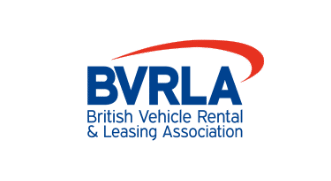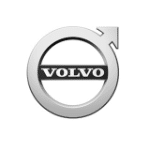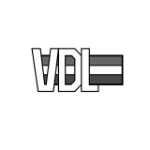General
-
What type of documents do I need to rent a truck?An O Licence (Operator’s Licence) to operate legally and comply with UK legislation as well as proof of insurance.
-
What services and features are included in a truck rental?Mac’s Truck Rental maintain both the vehicle and any equipment, ensuring all relevant compliance is adhered to such as PMI’s, LOLER’s etc. The maintenance is included in the price. Other benefits of renting / leasing is that the customer has fixed monthly costs, helping the customer with cashflow planning. There’s no depreciation for the customer to think about compared to when buying their own vehicles.
-
Can I add additional drivers to the rental agreement?This depends on the insurance of the customer or business who are renting the truck. Companies like Mac’s Truck Rental simply supply a truck to the business and not an individual.
-
How much can I tow with a rental truck?This depends on the vehicle towing capacity which varies from each truck. You should ask the provider for more information, and they will be able to advise.
-
How long is a 7.5 tonne lorry?The length of a 7.5 tonne lorry, also known as a 7.5-ton truck, can vary depending on the specific model and make. However, a typical 7.5 tonne lorry has an overall length of approximately 12-14 meters (39-46 feet). It’s important to note that the exact dimensions can vary, so it’s best to check the specifications for the specific truck you’re interested in.
-
What is the difference between a lorry and HGV?The terms “lorry” and “HGV” are both used to refer to large commercial vehicles used for transporting goods. However, “lorry” is a term primarily used in the UK, while “HGV” (which stands for “Heavy Goods Vehicle”) is used more commonly in the EU and other parts of the world.
In general, a lorry and an HGV refer to the same type of vehicle, but the exact definition of what constitutes a lorry or HGV can vary depending on the country or region. In the UK, for example, a lorry is defined as a motor vehicle that is designed or adapted for the carriage of goods and has a maximum weight exceeding 7.5 tonnes. However, in the EU, HGVs are classified based on their maximum authorised weight, with the exact definition of an HGV ranging from 3.5 to 44 tonnes or more. Overall, there is no significant difference between a lorry and HGV, and the two terms can be used interchangeably. To refer to large commercial vehicles used for transporting goods.
-
How big is an 18 tonne lorry?The size of an 18-tonne lorry can vary depending on the manufacturer and the intended use of the vehicle. However, on average, an 18-tonne lorry is typically between 12 and 14 meters in length and 2.5 to 3 meters in height. The exact dimensions can vary based on the specific model and configuration of the vehicle, as well as the regulations in the country or region where it will be used.
It’s also worth noting that the weight of an 18-tonne lorry refers to its maximum authorised weight. This includes the weight of the vehicle itself as well as any goods and other equipment it may be carrying. The actual size of the vehicle may be smaller, but it will still need to meet certain regulations and standards for commercial vehicles.
-
What is difference between lorry and truck?The terms “lorry” and “truck” are both used to refer to large vehicles used for transporting goods. However, the term “lorry” is primarily used in the UK and other parts of the world, while “truck” is more commonly used in the United States and other North American countries.
In general, a lorry and a truck refer to the same type of vehicle, but the exact definition of what constitutes a lorry or truck can vary depending on the country or region. In the UK, for example, a lorry is defined as a motor vehicle that is designed or adapted for the carriage of goods and has a maximum weight exceeding 7.5 tonnes. However, in the US, a truck is typically defined as a motor vehicle designed for transporting goods, people, or equipment. Overall, the choice of term may depend on the specific country or region where the vehicle is used, as well as personal preference and local terminology.
Grab Lorries
-
How much can a grab lorry lift?The capacity of a grab lorry refers to the maximum amount of waste or material that it can carry in its load bed. The exact capacity can vary depending on the size and configuration of the vehicle, as well as the type of waste or material being transported.
In general, the capacity of a standard grab lorry is typically between 8 and 16 cubic meters, with the exact capacity being dependent on the size of the vehicle and its load bed. Some grab lorries may have an extendable arm or hydraulic grab. Therefore, increasing their capacity by allowing them to reach and pick up larger loads.
It’s worth noting that grab lorries are subject to weight restrictions and other regulations, so it’s important to ensure that the vehicle is not overloaded. This can pose a safety risk and result in penalties or fines. The driver or operator of the grab lorry will be able to advise on its specific capacity and any restrictions that may apply.
-
What Licence do I need to drive a grab lorry?In the UK, to drive a grab lorry you will typically need to hold a Category C1 license, also known as a “7.5-tonne truck license.” A Category C1 license allows you to drive a vehicle with a maximum authorised weight of 7.5 tonnes or more, including a grab lorry.
To obtain a Category C1 license, you will need to pass a series of tests, including a multiple choice theory test, a hazard perception test, and a practical driving test. You will also need to meet certain medical standards and have a valid driving license for cars (Category B).
If you already hold a Category C license, you may be able to drive a grab lorry without further testing. However, this will depend on the specific details of your license. It’s always best to check with your local licensing authority for the most up-to-date information on the requirements for driving a grab lorry in the UK.
-
Do I need a permit for a grab lorry?You may need a permit to operate a grab lorry, depending on the specific circumstances of your use of the vehicle. A permit is typically required when you need to park the grab lorry on the public road for a period of time, for example, to load or unload waste or materials.
In this case, you may need a permit from your local council or the relevant highway authority, which will allow you to park the grab lorry in a specific location for a set period of time. The permit will typically set out conditions for the use of the vehicle. For instance, the times and days that it is allowed to be parked, and any restrictions on access or operation.
It’s worth noting that the requirements for permits and licenses for grab lorries can vary depending on the specific area and circumstances. Therefore, always best to check with your local council or highway authority for the most up-to-date information on the regulations and requirements in your area.

one point of call for your trucks
We make renting a truck hassle-free so you can focus on what you do best, growing your business.

we've been in business since 1972
As part of the Mac's Trucks group we've been selling and making trucks since 1972.

SERVICING, MAINTENANCE & 24/7 BREAKDOWN
You just put the fuel and driver in and we take care of everything else.
Our Accreditations






Truck Hire, Lease & Rental Specialists
Macs Truck Rental specialises in commercial vehicle hire tailored to your business needs, with over 50 year’s experience of supporting the Construction, Haulage & Waste Management Industries.
If you are looking for short-term hire for flexible fleet solutions or for fixed-term contract hire, we have the vehicle profile to suit your business requirements.
Being a family-owned business, our core values are centred around customer experience and the hassle-free hire we offer.
Benefits of Contract Truck Leasing
All our rental vehicles are fully maintained by Macs Truck Rental by your local DAF, Scania or Volvo main dealer, reducing the vehicle downtime through breakdowns and repairs.
All our rental fleet vehicles are late/new models allowing fuel efficiency benefits and ensuring compliance to industry requirements.
OUR KEY MANUFACTURERS





